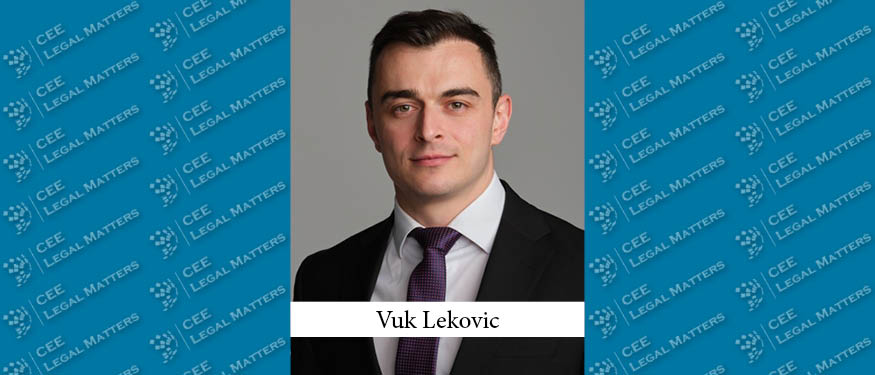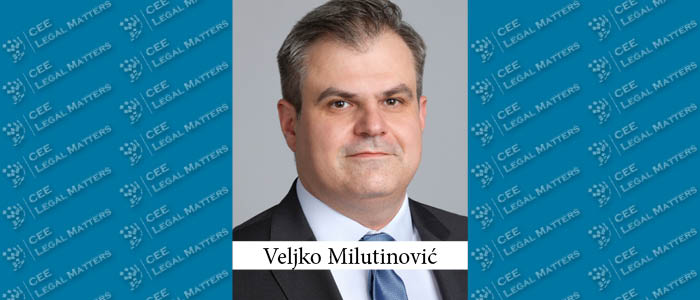Gecic Law has opened up an office in Brussels under the helm of Partner Anne MacGregor.
Gecic Law Successful for Arena Channels Group in Bosnia and Herzegovina in Antitrust Case
Gecic Law has successfully represented Arena Channels Group, alongside BH Telecom and Mtel Banja Luka, in an antitrust dispute before the Court of Bosnia and Herzegovina.
Gecic Law Launches Sports Law Practice Group
Gecic Law has launched a Sports Law practice group led by Senior Associate Vuk Lekovic.
Deal Expanded: Telekom Srbija’s EUR 1.5 Billion Move Into Regional Content
On February 19, 2025, CEE Legal Matters reported that Gecic Law advised on Telekom Srbija's acquisition of NetTV Plus, Total TV operations in Serbia and North Macedonia, and Western Balkans Sport Klub rights licenses from United Group. The transaction with a combined enterprise value of EUR 1.5 billion is one of the largest telecom sector deals in Serbia and the broader Balkans region’s history. With the deal recently closed after securing merger clearances in four jurisdictions (Serbia, Bosnia and Herzegovina, Montenegro, and North Macedonia), Gecic Law Partners Bogdan Gecic, Ognjen Colic, and Miodrag Jevtic take a closer look at the deal.
Gecic Law Appoints Jelena Bjelanovic as Head of Finance and Executive Management Committee Member
Gecic Law has appointed Jelena Bjelanovic as its new Head of Finance and a member of the firm’s Executive Management Committee.
Major EU Sustainability Reforms: The Omnibus Package Explained
The European Commission has introduced a new legislative package aimed at simplifying sustainability and investment regulations. In the latest Competitiveness Compass we recently covered, the Commission outlined its strategy to enhance the EU’s economic prosperity and competitiveness. Known as Omnibus I and Omnibus II, these reforms are designed to cut administrative burdens, enhance business competitiveness, and maintain the EU’s commitment to sustainability goals. The key areas affected include the Corporate Sustainability Reporting Directive (CSRD), the Corporate Sustainability Due Diligence Directive (CSDDD), the Carbon Border Adjustment Mechanism (CBAM), and the InvestEU Regulation. By streamlining compliance, the EU hopes to make regulatory obligations more manageable while still upholding environmental and social governance (ESG) objectives.
Gecic Law, Kinstellar, and Schoenherr Advise on United Group's Sale of Eon TV International and SBB Belgrade
Gecic Law, working with Clifford Chance, has advised Telekom Srbija on its acquisition of Eon TV International from United Group as part of a deal that also saw United Group sell SBB Belgrade to e& PPF Telecom Group. Kinstellar, working with Sullivan & Cromwell, advised e& PPF Telecom Group. Moravcevic Vojnovic and partners in cooperation with Schoenherr, working with Kirkland & Ellis, advised United Group.
Serbia: Non-Compete Clauses Labor Law
Non-competition (non-compete) clauses came into the spotlight this year as the US Federal Trade Commission (FTC) decided to impose a broad ban on their use. The underlying motive for this is the perception that the non-compete clauses, in the words of FTC Chair Lina Khan, keep wages low, suppress new ideas, and rob the American economy of dynamism, including from the more than 8,500 new start-ups that would be created a year once non-competes are banned. However, this rule quickly faced challenges, including a lawsuit from the US Chamber of Commerce, which argued that it was unfounded and that the FTC exceeded its authority.
EU Announces EUR 4.6 Billion Investment to Boost Clean Energy Development
To bolster Europe’s clean energy transition, the European Commission has recently announced a EUR 4.6 billion investment. This funding aims to advance net-zero technologies, electric vehicle (EV) battery cell manufacturing, and renewable hydrogen production. This initiative marks a pivotal step in the EU’s commitment to achieving climate neutrality by 2050.
Amendments to Serbia’s Energy Act: Lifting the Ban on Nuclear Energy
The Serbian Parliament has passed the amendments to the Energy Act, introducing significant reforms to the nation’s energy policy – a landmark change is lifting the long-standing moratorium on nuclear power plant construction, which has been in place since 1989 following the Chernobyl disaster. The updated legislation also includes broader measures aimed at modernizing Serbia’s energy sector.
CBAM Update: Draft Rules for Authorized Declarants and the CBAM Registry Unveiled
The European Commission recently launched the consultation phase on two essential draft regulations to strengthen the EU Carbon Border Adjustment Mechanism (CBAM) regulation’s operational structure. These include the draft Implementing Regulation for Authorized Declarants and creating a comprehensive CBAM registry. Stakeholders can submit feedback until November 28, 2024. These regulations clarify key aspects of the definitive CBAM implementation, set to begin on January 1, 2026.
King & Spalding, Clifford Chance, and Gecic Law Advise on Telekom Srbija's USD 900 Million Senior Notes Offering
King & Spalding has advised the syndicate of joint lead managers on Telekom Srbija Beograd’s USD 900 million senior notes offering. Gecic Law, working with Clifford Chance, advised Telekom Srbija.
Optimistic Vibes in Serbia: A Buzz Interview with Miodrag Jevtic of Gecic Law
Serbia's recent economic growth is driven by foreign direct investment, infrastructure projects, and advancements in several sectors according to Gecic Law Partner Miodrag Jevtic.
CMS Advises UGT Renewables on Partnership with EPS
CMS, working with Norton Rose Fulbright, has advised UGT Renewables on a partnership agreement with Serbia's state-owned power utility Elektroprivreda Srbije and the Ministry of Mining and Energy for the development and construction of new solar power plants and battery storage facilities in Serbia. Akin Gump reportedly advised the Government of the Republic of Serbia.
Gecic Law Successful for Telekom Srbija in Competition Case in North Macedonia
Gecic Law, working with sole practitioner Branko Radojcic, has successfully represented Telekom Srbija before the Commission for Protection of Competition in North Macedonia.
European Court of Justice Revives EUR 13 Billion State Aid Ruling Against Apple in a Landmark Decision
In a crucial legal victory for the European Commission, the European Court of Justice (ECJ) has upheld the Commission’s decision that Apple must repay up to €13 billion in back taxes to Ireland. This ruling, issued in September 2024, reaffirms the Commission’s original 2016 judgment, marking a significant step in the European Union‘s effort to crack down on favorable tax arrangements for multinational corporations.
Miodrag Jevtic Makes Partner at Gecic Law
Gecic Law has appointed Miodrag Jevtic to Partner.
Serbia: EXPO Belgrade 2027 and the Role of PPPs in Infrastructure Development
Serbia’s booming construction sector and ongoing infrastructure projects establish it as a vital economic hub in the region. In 2023, construction works valued at over EUR 5 billion contributed around 5.5% to the national GDP. The country’s strategic location and ambitious infrastructure plans have attracted significant foreign investment. With projects like highways, railways, and energy facilities underway, Serbia is strengthening its position as a critical economic connector in Southeast Europe.



















